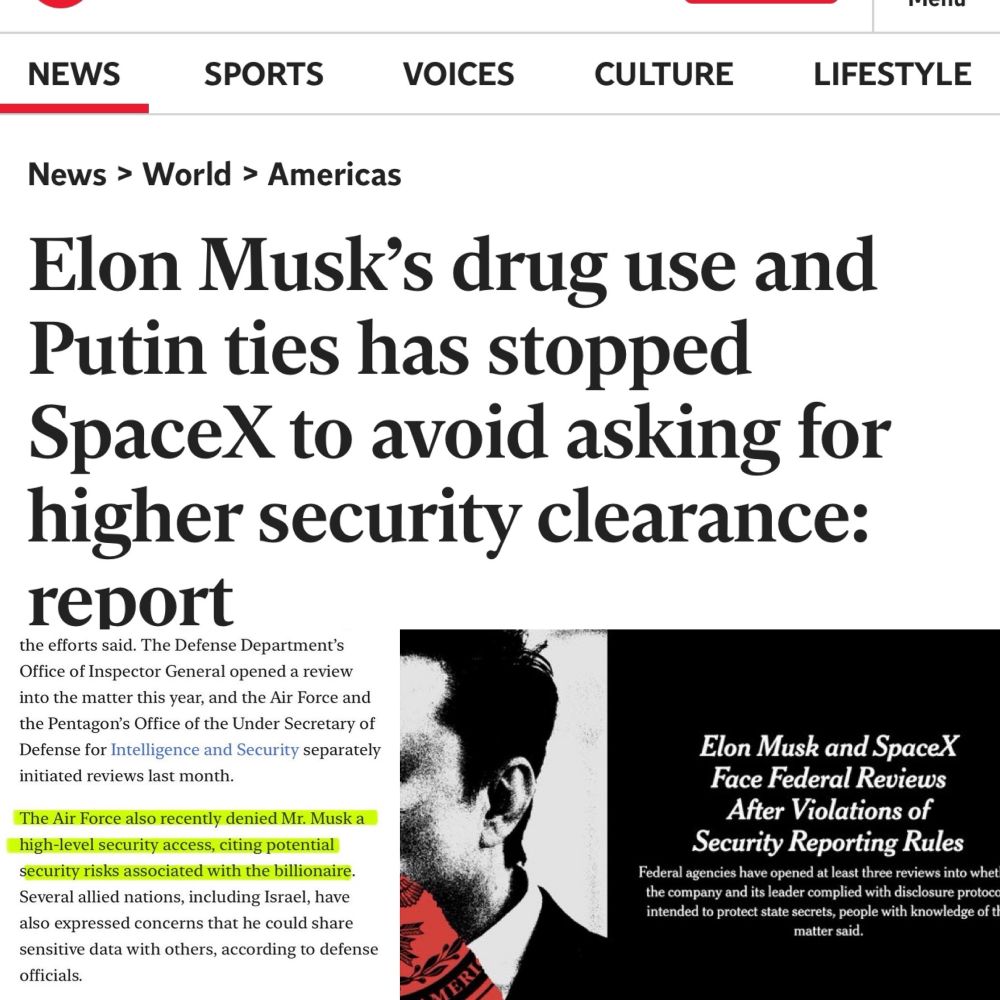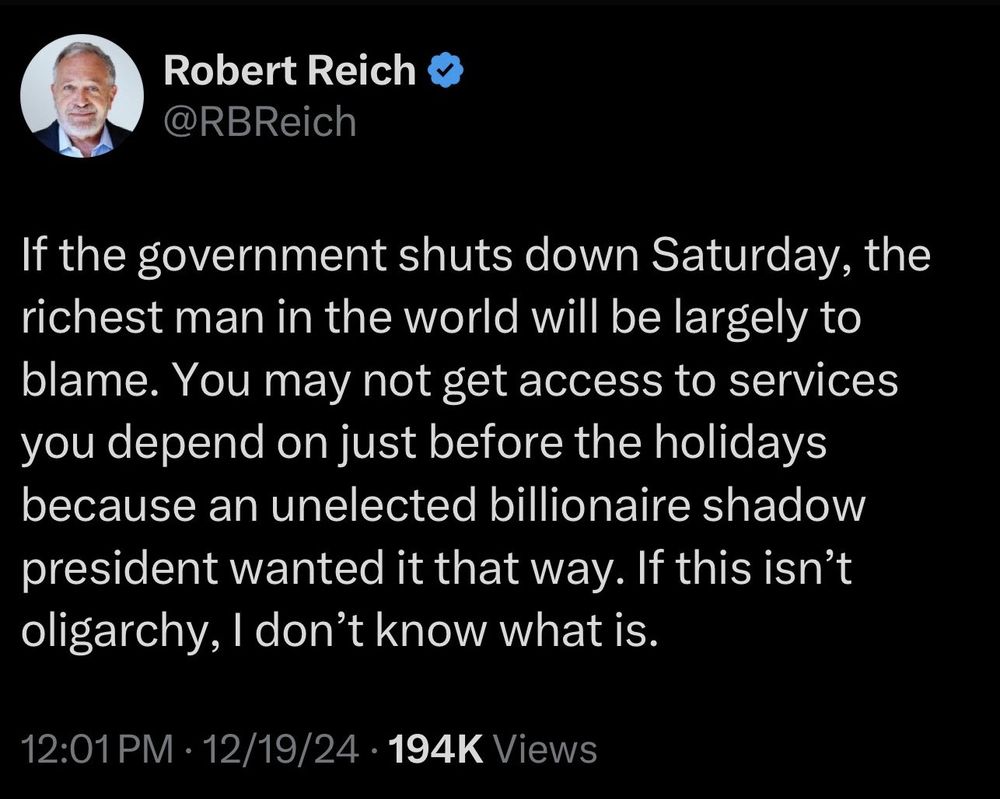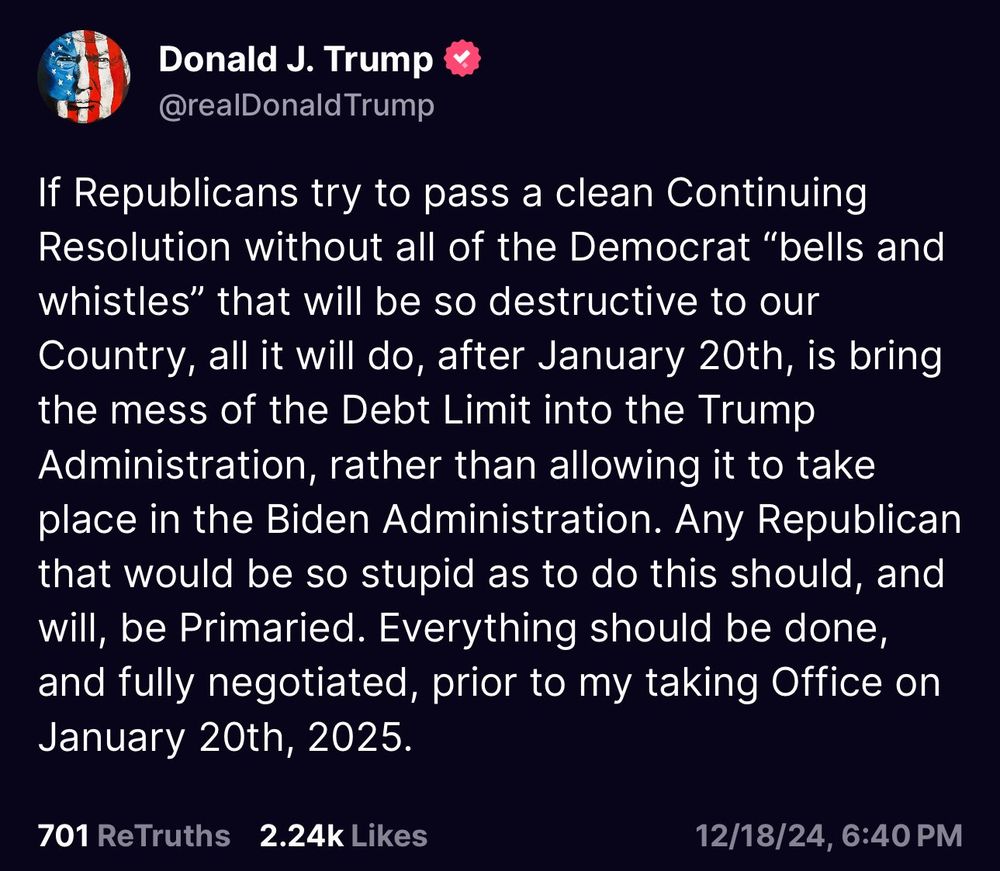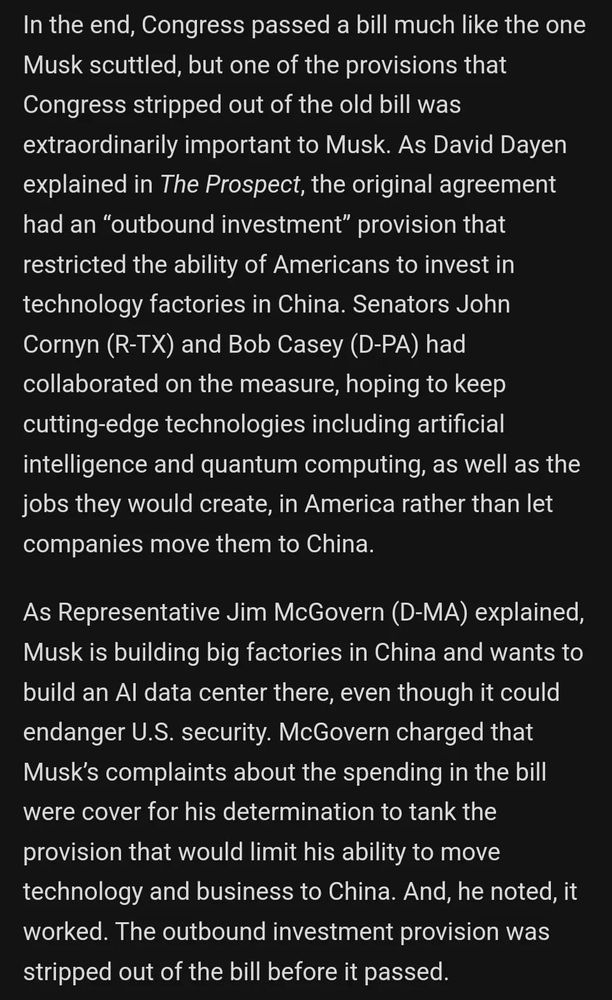Re: Politics Random, Random
Posted: Thu Dec 19, 2024 2:41 am
A government shutdown looked unlikely. Then Elon Musk took to X.
In a show of power, the head of the “Department of Government Efficiency” pushed House Speaker Mike Johnson to scrap a compromise spending bill.
December 18, 2024 at 7:22 p.m. ESTToday at 7:22 p.m. EST
By Faiz Siddiqui, Jacob Bogage, Jeff Stein and Tony Romm
Congressional leaders had lined up on Tuesday to approve a spending bill that would avert a government shutdown — before Elon Musk, President-elect Donald Trump’s “first buddy,” injected himself into the conversation in the wee hours of Wednesday morning.
With a five-word post on X, Musk threw the process into chaos.
“This bill should not pass,” the Tesla and SpaceX CEO wrote at 4:15 a.m. Eastern time, a message that reverberated across Washington, where some took it as the strongest signal yet of the new reality under the head of the “Department of Government Efficiency,” Trump’s nongovernmental panel charged with finding ways to slash federal spending.
Over the ensuing 12 hours, Musk went on a prolific tirade against the bill — with more than 60 updates, some of which boosted false claims — that stood out even for a chronic poster who has commanded an audience of more than 200 million followers by broadcasting his largely uninhibited views on the site he owns.
By midday, Musk’s barrage was increasingly acerbic, decrying the bill as “terrible,” “criminal,” “outrageous,” “horrible,” “unconscionable,” “crazy” and, ultimately, “an insane crime.” He also took aim at those who would support it.
“Any member of the House or Senate who votes for this outrageous spending bill deserves to be voted out in 2 years!” Musk wrote shortly after 1 p.m. Wednesday.
To leaders in Washington, it appeared he was serious. Musk did not respond to a request for comment.
Musk’s word on the funding extension ricocheted around Capitol Hill, as lawmakers jockeyed to invoke his DOGE as reason to reject the legislation that would put off a Christmastime government shutdown.
“It’s good that they’re seeing this, that they’re seeing the failure of Congress now, so they can start and so they can understand how to come after us when they get here,” said Rep. Eric Burlison (R-Missouri), an active member of the House’s DOGE Caucus.
About an hour after Musk’s threat of retribution, the billionaire followed up with a new directive: “No bills should be passed Congress until Jan. 20, when @realDonaldTrump takes office.”
“None,” he added. “Zero.”
The approach appeared to work, as support fractured even among some establishment Republicans who earlier appeared inclined to support the measure. (A large bloc of conservative rebels already opposed the bill before Musk got involved.)
Burlison posted on X that Johnson’s funding bill was “the very thing the incoming Department of Government Efficiency is trying to put an end to. A vote for this monstrosity is a vote against DOGE.”
Musk endorsed the sentiment: “Absolutely,” he responded.
Alerted to the tech entrepreneur’s endorsement, Burlison grinned and snickered.
“It’s awesome,” he said, fist-bumping with a staff member while riding the subway in the Capitol basement.
Rep. Andy Harris (R-Maryland), chair of the archconservative House Freedom Caucus, told The Washington Post that Musk’s opposition aligned with DOGE’s goals — and he was getting results even before Trump takes office.
“He’s been given a huge responsibility to try to control the size and growth of the federal government, and, I guess, like a lot of people who are used to running businesses, they don’t wait until tomorrow to start,” Harris said. “They’re given a goal, and they start as soon as possible.”
Underscoring the rapid pace of events, less than 12 hours after Musk first condemned the spending bill, the billionaire was taking a victory lap.
“Your elected representatives have heard you and now the terrible bill is dead,” he said. “The voice of the people has triumphed!”
Longtime political observers were stunned by the swift impact of Musk’s intervention.
Trump stayed largely silent on the measure through Wednesday afternoon, putting Musk in the unusual position of exerting more influence on the bill than the incoming president. Finally, by late afternoon, Trump, too, aired his opposition.
“Republicans must GET SMART and TOUGH. If Democrats threaten to shut down the government unless we give them everything they want, then CALL THEIR BLUFF,” he said in a joint statement with Vice President-elect JD Vance. “… THIS CHAOS WOULD NOT BE HAPPENING IF WE HAD A REAL PRESIDENT. WE WILL IN 32 DAYS!”
But it was Musk who seemed to force the tipping point.
“Elon is having an incredible effect,” said Gordon Gray, executive director at Pinpoint Policy Institute, a center-right think tank, who noted the “real-time” shift. “I am struggling to recall another instance where an unelected public figure has exercised that kind of influence.”
Still, Musk’s campaign relied on or repeated at least some false claims.
He reposted a claim that the legislation includes a “40% pay raise for Congress,” calling it “unconscionable.” The DOGE account also said on X that the legislation would raise pay for members of Congress to $243,000, up from $174,000.
It is unclear where that number came from. The legislation includes language allowing a 3.8 percent pay bump to take effect, which would result in a pay raise for lawmakers of $6,600 — far short of what Musk claimed, according to a statement from Rep. Jared Golden (D-Maine), who said he would oppose the bill because it allowed the pay raise. Congress has blocked its own cost-of-living allowance increases since 2009.
Musk also amplified false claims that the legislation included $3 billion in federal funds for a new football stadium in the District. In fact, the provision would transfer the land where RFK Stadium sits to the local government, but it provided no funding, and the city would still have to negotiate with the National Football League’s Washington Commanders over a stadium deal.
Similarly, Musk shared allegations that the legislation included $60 billion in new aid for Ukraine. Two congressional aides and Brian Riedl, senior fellow at the Manhattan Institute, said that they had no idea where the number came from and that the bill appeared to have no major new funds for Kyiv. Congress approved $60 billion in aid for Ukraine this spring.
“I have no idea what he’s talking about — where is that even coming from? Maybe the bill that passed in April?” said one of the aides, speaking on the condition of anonymity to discuss the matter candidly. “It’s not in there — if you have any evidence of that, I’d like to know.”
But the damage was already done.
Little over a month after an election in which Musk put $277 million behind supporting Trump and other Republicans, the tech entrepreneur appeared to have successfully sunk a continuing resolution to shut down the government.
“A guy who dropped $250 million in the last election and doesn’t blink an eye, and can mobilize Republican voters through his social media platform, that’s an intimidating guy,” said Robert Weissman, the co-president of Public Citizen, a consumer advocacy group that supports limits on corporate spending in politics. “Having demonstrated his willingness to spend hundreds of millions of dollars, every politician knows they could be next. And the ones most vulnerable are Republicans who might be primaried.”
https://www.washingtonpost.com/business ... down-bill/
In a show of power, the head of the “Department of Government Efficiency” pushed House Speaker Mike Johnson to scrap a compromise spending bill.
December 18, 2024 at 7:22 p.m. ESTToday at 7:22 p.m. EST
By Faiz Siddiqui, Jacob Bogage, Jeff Stein and Tony Romm
Congressional leaders had lined up on Tuesday to approve a spending bill that would avert a government shutdown — before Elon Musk, President-elect Donald Trump’s “first buddy,” injected himself into the conversation in the wee hours of Wednesday morning.
With a five-word post on X, Musk threw the process into chaos.
“This bill should not pass,” the Tesla and SpaceX CEO wrote at 4:15 a.m. Eastern time, a message that reverberated across Washington, where some took it as the strongest signal yet of the new reality under the head of the “Department of Government Efficiency,” Trump’s nongovernmental panel charged with finding ways to slash federal spending.
Over the ensuing 12 hours, Musk went on a prolific tirade against the bill — with more than 60 updates, some of which boosted false claims — that stood out even for a chronic poster who has commanded an audience of more than 200 million followers by broadcasting his largely uninhibited views on the site he owns.
By midday, Musk’s barrage was increasingly acerbic, decrying the bill as “terrible,” “criminal,” “outrageous,” “horrible,” “unconscionable,” “crazy” and, ultimately, “an insane crime.” He also took aim at those who would support it.
“Any member of the House or Senate who votes for this outrageous spending bill deserves to be voted out in 2 years!” Musk wrote shortly after 1 p.m. Wednesday.
To leaders in Washington, it appeared he was serious. Musk did not respond to a request for comment.
Musk’s word on the funding extension ricocheted around Capitol Hill, as lawmakers jockeyed to invoke his DOGE as reason to reject the legislation that would put off a Christmastime government shutdown.
“It’s good that they’re seeing this, that they’re seeing the failure of Congress now, so they can start and so they can understand how to come after us when they get here,” said Rep. Eric Burlison (R-Missouri), an active member of the House’s DOGE Caucus.
About an hour after Musk’s threat of retribution, the billionaire followed up with a new directive: “No bills should be passed Congress until Jan. 20, when @realDonaldTrump takes office.”
“None,” he added. “Zero.”
The approach appeared to work, as support fractured even among some establishment Republicans who earlier appeared inclined to support the measure. (A large bloc of conservative rebels already opposed the bill before Musk got involved.)
Burlison posted on X that Johnson’s funding bill was “the very thing the incoming Department of Government Efficiency is trying to put an end to. A vote for this monstrosity is a vote against DOGE.”
Musk endorsed the sentiment: “Absolutely,” he responded.
Alerted to the tech entrepreneur’s endorsement, Burlison grinned and snickered.
“It’s awesome,” he said, fist-bumping with a staff member while riding the subway in the Capitol basement.
Rep. Andy Harris (R-Maryland), chair of the archconservative House Freedom Caucus, told The Washington Post that Musk’s opposition aligned with DOGE’s goals — and he was getting results even before Trump takes office.
“He’s been given a huge responsibility to try to control the size and growth of the federal government, and, I guess, like a lot of people who are used to running businesses, they don’t wait until tomorrow to start,” Harris said. “They’re given a goal, and they start as soon as possible.”
Underscoring the rapid pace of events, less than 12 hours after Musk first condemned the spending bill, the billionaire was taking a victory lap.
“Your elected representatives have heard you and now the terrible bill is dead,” he said. “The voice of the people has triumphed!”
Longtime political observers were stunned by the swift impact of Musk’s intervention.
Trump stayed largely silent on the measure through Wednesday afternoon, putting Musk in the unusual position of exerting more influence on the bill than the incoming president. Finally, by late afternoon, Trump, too, aired his opposition.
“Republicans must GET SMART and TOUGH. If Democrats threaten to shut down the government unless we give them everything they want, then CALL THEIR BLUFF,” he said in a joint statement with Vice President-elect JD Vance. “… THIS CHAOS WOULD NOT BE HAPPENING IF WE HAD A REAL PRESIDENT. WE WILL IN 32 DAYS!”
But it was Musk who seemed to force the tipping point.
“Elon is having an incredible effect,” said Gordon Gray, executive director at Pinpoint Policy Institute, a center-right think tank, who noted the “real-time” shift. “I am struggling to recall another instance where an unelected public figure has exercised that kind of influence.”
Still, Musk’s campaign relied on or repeated at least some false claims.
He reposted a claim that the legislation includes a “40% pay raise for Congress,” calling it “unconscionable.” The DOGE account also said on X that the legislation would raise pay for members of Congress to $243,000, up from $174,000.
It is unclear where that number came from. The legislation includes language allowing a 3.8 percent pay bump to take effect, which would result in a pay raise for lawmakers of $6,600 — far short of what Musk claimed, according to a statement from Rep. Jared Golden (D-Maine), who said he would oppose the bill because it allowed the pay raise. Congress has blocked its own cost-of-living allowance increases since 2009.
Musk also amplified false claims that the legislation included $3 billion in federal funds for a new football stadium in the District. In fact, the provision would transfer the land where RFK Stadium sits to the local government, but it provided no funding, and the city would still have to negotiate with the National Football League’s Washington Commanders over a stadium deal.
Similarly, Musk shared allegations that the legislation included $60 billion in new aid for Ukraine. Two congressional aides and Brian Riedl, senior fellow at the Manhattan Institute, said that they had no idea where the number came from and that the bill appeared to have no major new funds for Kyiv. Congress approved $60 billion in aid for Ukraine this spring.
“I have no idea what he’s talking about — where is that even coming from? Maybe the bill that passed in April?” said one of the aides, speaking on the condition of anonymity to discuss the matter candidly. “It’s not in there — if you have any evidence of that, I’d like to know.”
But the damage was already done.
Little over a month after an election in which Musk put $277 million behind supporting Trump and other Republicans, the tech entrepreneur appeared to have successfully sunk a continuing resolution to shut down the government.
“A guy who dropped $250 million in the last election and doesn’t blink an eye, and can mobilize Republican voters through his social media platform, that’s an intimidating guy,” said Robert Weissman, the co-president of Public Citizen, a consumer advocacy group that supports limits on corporate spending in politics. “Having demonstrated his willingness to spend hundreds of millions of dollars, every politician knows they could be next. And the ones most vulnerable are Republicans who might be primaried.”
https://www.washingtonpost.com/business ... down-bill/




